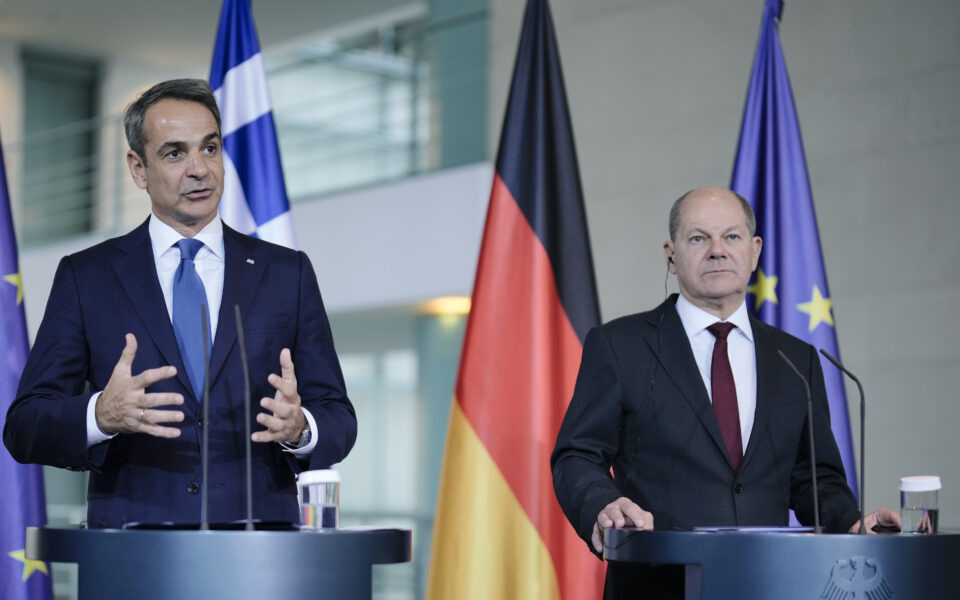Migration, Turkey, energy issues, and the Middle East dominated the discussion between Kyriakos Mitsotakis and Olaf Scholz in Berlin, with the economy taking a backseat reflecting Greece’s transition from the dire financial straits of the previous decade.
Mitsotakis described this transition as “national progress,” citing Greece’s investment grade, and the fact that it has seen the fastest debt reduction in the world.
“From being the black sheep in the years of the crisis, it is now an example,” he said.
Consequently, the discussion between the two leaders took place on a completely different basis than in the past, leaving behind “a period of tension and suspicion.”
Mitsotakis also referred to inflation and, by extension, high prices, stressing that “we have seen the worst.”
For his part, the German chancellor stressed that “Greece is on a very positive course in terms of its economy” and “we have seen that the financial markets also have confidence in dealing with the problem.”
The two leaders also referred to Turkish President Recep Tayyip Erdogan, who will visit Berlin in two days and Athens on December 7.
“The fact that we disagree with Erdogan on Hamas does not mean that we cannot welcome him to make a step forward in the Greek-Turkish rapprochement, which has so far yielded some good results based on international law and the law of the sea and we will try to capitalize on this in Erdogan’s visit on December 7,” Mitsotakis said. Both Mitsotakis and the chancellor were also on the same page regarding Hamas’ designation as a “terrorist organization.”
“Israel has the right, and the obligation, to defend itself, always within the framework of international law,” said Scholz, advocating “humanitarian pauses” in hostilities.
With regard to migration, Mitsotakis reiterated that additional resources are needed for its management, and raised the issue of European funding for the Evros fence on Greece’s northeastern border.
“Athens insists that additional resources are needed for the migration issue. It is very likely that frontline states like Greece will face new pressures on their borders with the new crisis in the Middle East,” he noted. Scholz said Germany recognizes the effort Greece is making.
He also emphasized the importance of the swift completion of reform to European asylum legislation, and the necessity for bilateral and European solutions to deal with secondary migration to Germany.
The talks also focused on energy cooperation, with Mitsotakis emphasizing Greece’s role as a center for the transmission of “green” energy to southern Germany, as well as an energy bridge between the Middle East, Egypt and Europe.
Source : Ekathimerini


